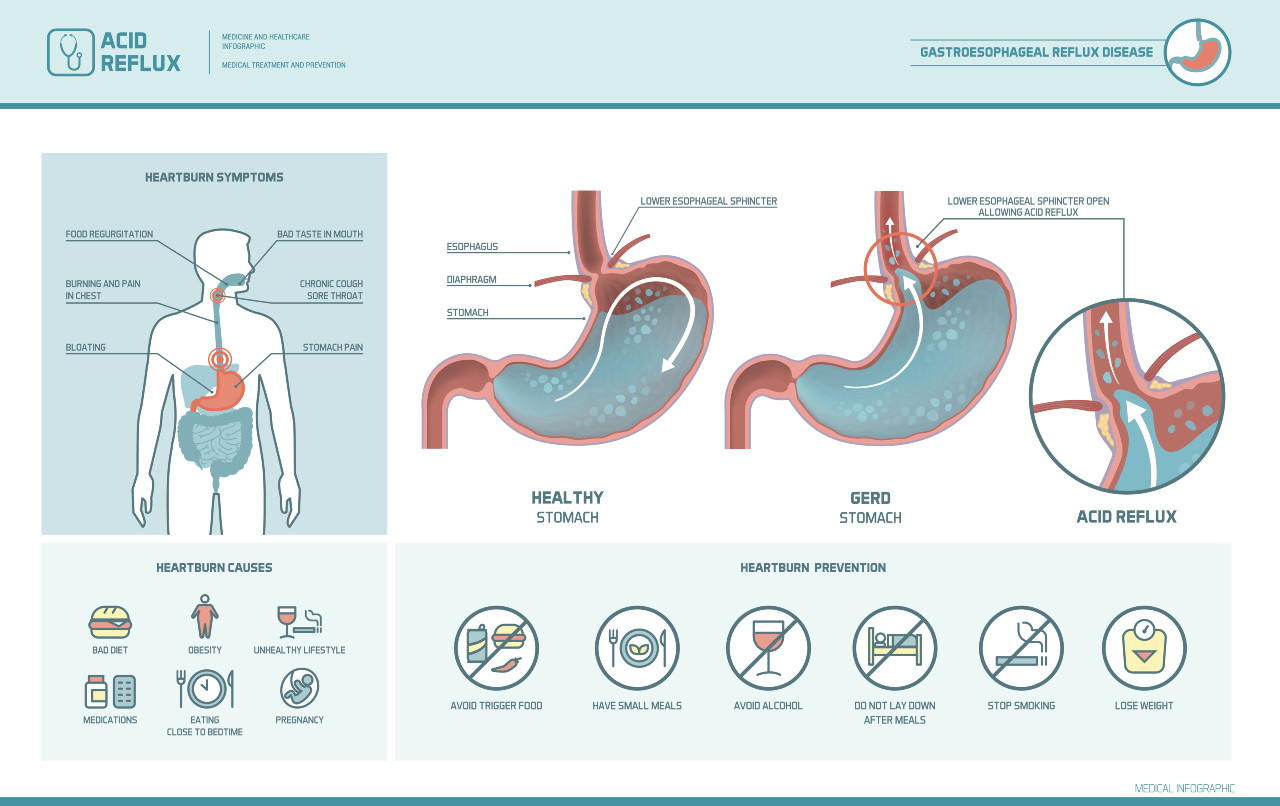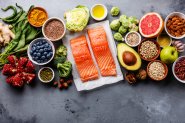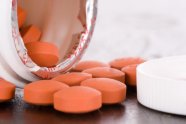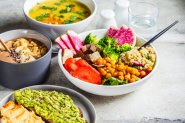Advertising Disclosure
Natural ways to treat and prevent gastroesophageal reflux disease (GERD)
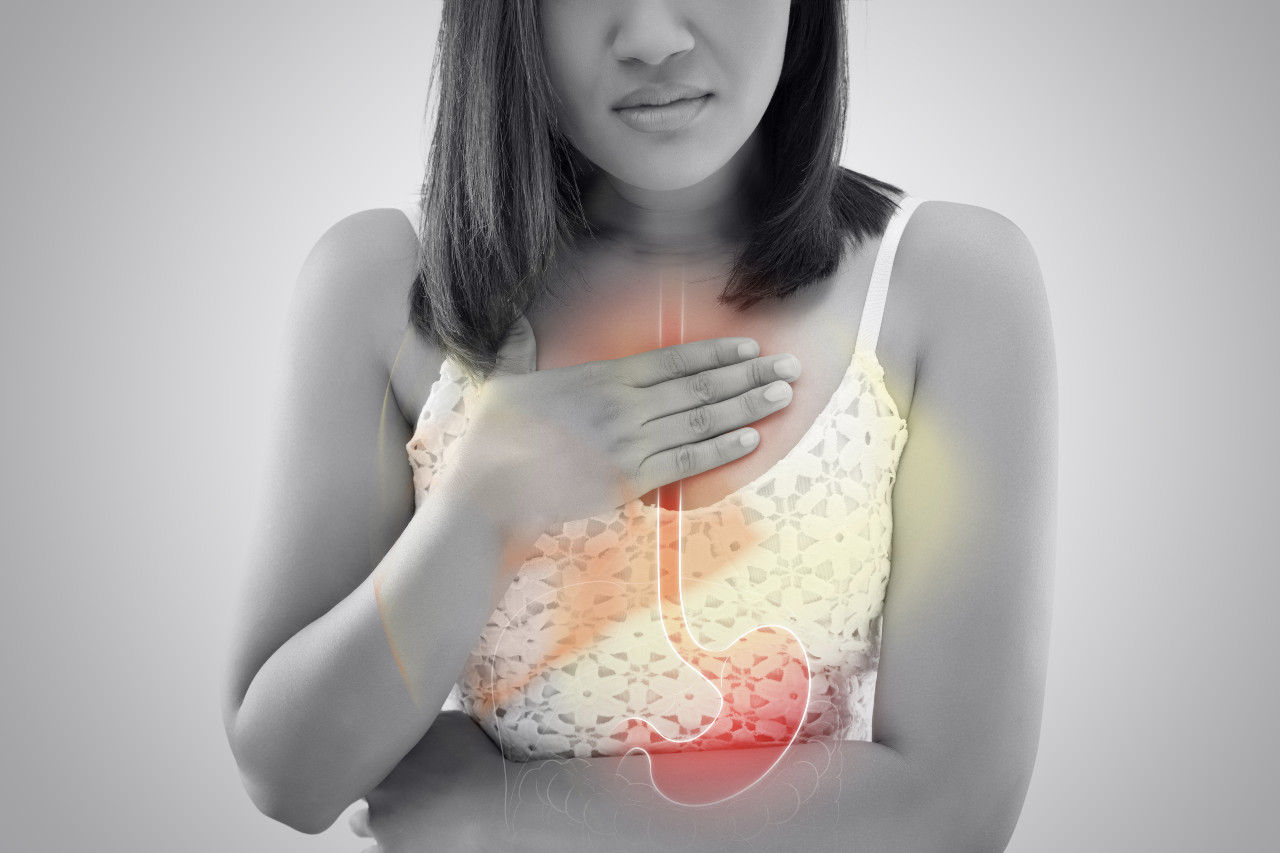
When the muscle located between your esophagus and stomach, called the lower esophageal sphincter, is not closing, it results in stomach acid and food flowing up into the esophagus. This is better known as acid reflux. In some people who experience chronic symptoms due to acid reflux, it leads to gastroesophageal reflux disease or GERD. Besides the symptom of acid reflux, people with GERD may also experience heartburn, nausea or problems swallowing. There are multiple causes of GERD, and living with the symptoms can become extremely painful. But medication isn’t always the best solution for everyone. For those who prefer more natural ways to treat GERD small lifestyle changes may help alleviate their symptoms. Always consult your doctor before making any changes.
Treat GERD naturally by drinking ginger tea
Ginger tea contains anti-inflammatory properties as well as antioxidants that help with stress and aid digestion. It’s a natural way to alleviate the symptoms of nausea and acid reflux. And ginger tea is widely available in supermarkets and online. Or, if you are feeling up to it, you can make your own ginger tea. All you need is ginger root and water. Peel the ginger root, then slice, dice or grate the ginger. (You don’t need a lot of ginger to enjoy the benefits. In fact, ingesting too much ginger can aggravate your symptoms.) From here, you can place it into a cup and pour hot water to let it steep. Or, if you want to make a bigger batch, put some ginger into a pot of water and let it boil for 30 minutes. Drink ginger tea before your meal to get the full benefits.
Treat GERD naturally by drinking chamomile tea
Chamomile tea is known for helping people have a better night’s sleep. However, chamomile tea may also help to alleviate symptoms of GERD. Chamomile contains anti-inflammatory properties as well. And the herb helps with symptoms of anxiety and depression. Though there is not enough scientific evidence to prove that chamomile helps with GERD symptoms, research shows that stress is one of the most common triggers for those who suffer from acid reflux . The theory is that if you reduce your stress levels, then your symptoms will subside.
Sleep on an incline
Most people who suffer from GERD notice that their symptoms become worse at night. Unfortunately, lying down allows the acids to move more freely into your esophagus. The solution is relatively simple: Keep your head in an elevated position, ideally 6 to 8 inches. Wedge pillows are the easiest option, and they are comfortable. Wedge pillows can also help with other medical problems, such as encouraging proper sinus draining and helping those with sleep apnea. The average cost for a wedge pillow will range between $45 – $100.
Eat more slowly
By working constantly and running errands, we give ourselves very little time to eat. Eating quickly gives the body too little time to process what it takes in. That leads to overeating. And when our stomachs become full, it can cause a build-up of stomach acid. For those with GERD, this means acid reflux and heartburn symptoms. So give yourself enough time to eat, and eat slowly. Another solution to this would be to eat smaller meals throughout the day instead of a couple of big meals.
Add probiotics to your diet
Probiotics are a natural way to regulate your digestion and alleviate symptoms of heartburn and acid reflux. They are combinations of beneficial bacteria or yeasts that live in our bodies . Helpful bacterias most commonly found in probiotics are Lactobacillus acidophilus and Bifidobacterium lactis . Probiotics are in foods like yogurt, kimchi, and sourdough bread. However, if these foods trigger your GERD symptoms, then supplements will be your best option.
Avoid triggering foods
Finding which foods trigger your symptoms will involve trial and error on your part. Some of the foods known to trigger acid reflux are dairy, apples, tomatoes, onions, greasy foods, spicy foods, coffee, alcohol, garlic and chocolate . It’s also best to avoid carbonated beverages, since your burping could force the stomach acid to come up into your esophagus. Checking out the FODMAP list is the best way to see which types of foods to try cutting out of your diet. Essentially FODMAPs are short-chained carbohydrates that the body has difficulty digesting. Living a low FODMAP diet can help clear up symptoms of both GERD and IBS.
